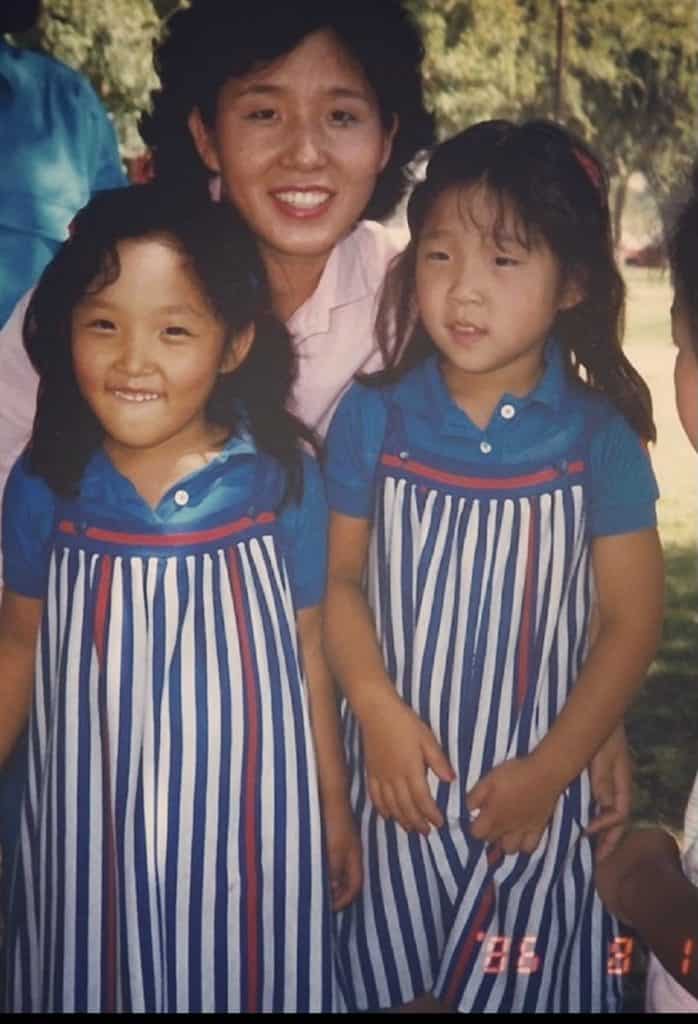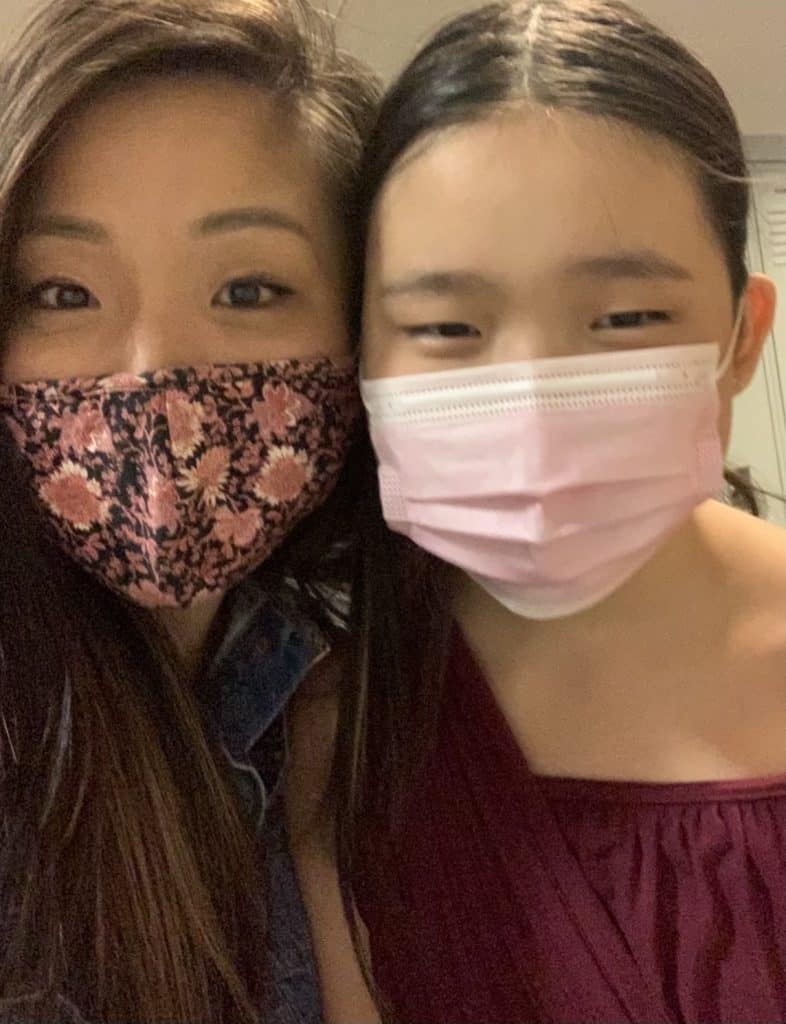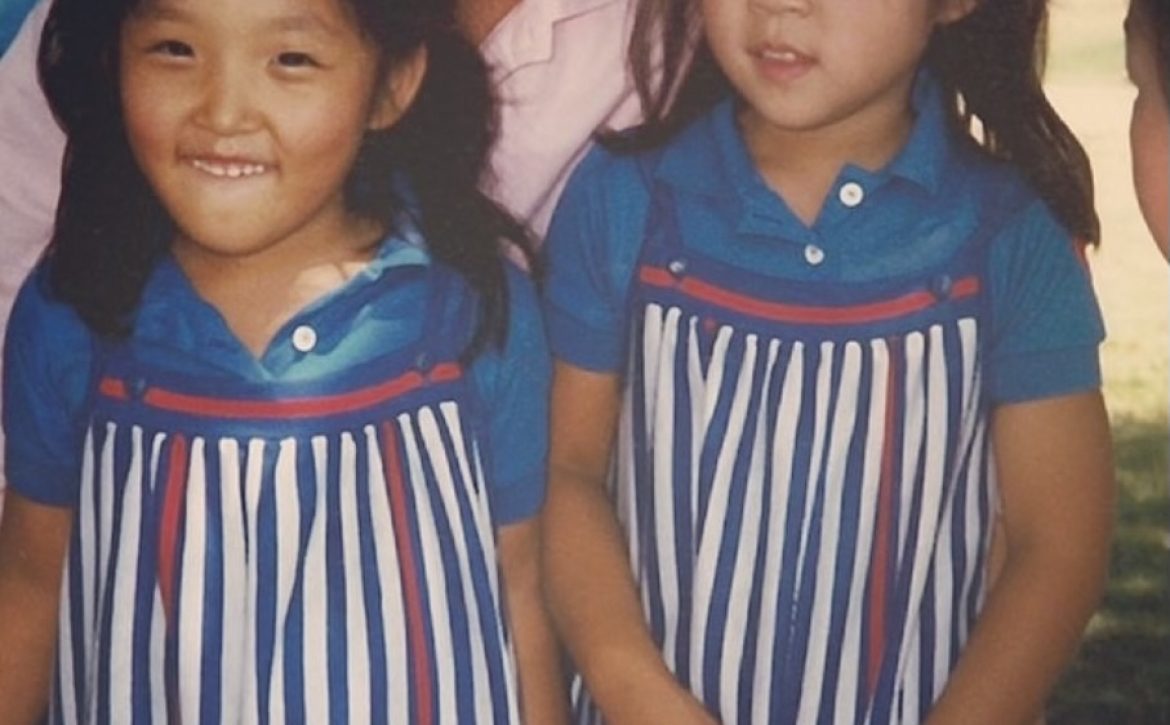Parenting With a Big Heart: Growing Empathy

When I was around five years old, I remember cuddling and watching TV with my Mom on our beige-colored pleather sofa. We stumbled on a special about children living in hunger and I distinctly remember the look on my Mom’s face: sadness, pain. Her eyes swelled up and she reached over to grab a tissue. I asked her why she was crying and she said in Korean, “This makes me feel so sad. No kid should be hungry.” She picked up the phone and made a call to donate money to an organization serving families facing food insecurity.
Looking back, I realize the hurt she felt when she saw those images probably was related to her own struggles growing up during the Korean war and being a first-generation immigrant to the United States from Korea. I often observed my Mom being open and vulnerable about her feelings — whether it was her joyful laughter that could light up a whole room, the look of exhaustion after a long day of work, or her sadness from things happening around her, which even included over-the-top, sad scenes from her favorite Korean soap operas that often made her burst into tears. (If any of you have ever watched a Korean drama, you know what I mean!)
The word that comes to mind when I think of her greatest strength is empathy. Empathy is the ability to sense other people’s emotions, and to imagine what someone else might be thinking or feeling.
Growing Into An Empathetic Mother

When I became pregnant with my daughter, I knew empathy was one of the most important traits and skills I wanted to pass along to her. I also knew that developing empathy would begin with the kind of environment I created at home and the actions I modeled in our everyday life. In a wonderful new book published by Gregg Behr and Ryan Rydzewskin, When You Wonder, You’re Learning, they write: “To become loving and caring people, kids first have to know that they’re worthy of love and care themselves.”
One of the greatest ways we can show that our children are worthy of love and care is by meeting them where they are, sharing in things they seem curious about, and letting them know that their feelings—all their feelings—matter (here’s a great feelings song to sing together).
Yet, this pandemic has stretched us all — our patience, our energy, our resources, our everything! During the times when I felt like things were falling apart, I felt an even greater need to show my kids that “Mommy has it all together.” One afternoon, about three months into the pandemic, my daughter broke down in tears about how hard it was to not see her friends, not having met some of her teachers in person, and having to sit in front of a computer all day. She said, “You wouldn’t understand because you always seem happy and strong.”
Wow, that hit me hard because while that couldn’t have been further from truth, it must have been what I projected to her. As we know, children take cues from their parents so in that moment, I check my own emotions by taking some time to breathe.
I then asked her to hold my hand and take some deep breaths with me — to help both of us calm down. After our last exhale, I admitted to her that I also have hard moments and she responded, “You do, too?” Suddenly, the heaviness that I noticed in her eyes, her shoulders, and her heart seemed a bit lighter. She was curious to know more and I shared that I struggle too, I feel sad, I feel so, so tired sometimes and talked about some of the things I do to feel better and unstuck in those moments.
We both agreed that we couldn’t wait for the pandemic to be OVER, but I reminded her that we’ve gone through hard things before, and I know we will get through this together too. The conversation ended with her giving me a hug saying, “I know we will. Okay, can you leave my room now? I have to go back to class.” In that moment when she needed empathy from me, she showed empathy back to me. But it started with her feeling safe to express all her feelings first and all she wanted to know was that she wasn’t alone.
Being Actively Empathetic for Our Kids
Parents today have a different kind of pressure that I don’t think our parents had when we were growing up — there were no Facebook or Instagram feeds showing photo-after-photo of “perfect” families with perfectly groomed hair and outfits, and immaculate living rooms. But I realize that our children don’t expect or want a super-parent, they want to know that we are human too — with our share of feelings, struggles, and mistakes.
Every parent’s situation is unique but making whatever moment we have count by being present to talk about these feelings with our children — in age-appropriate ways — can help them feel more compassionate towards others and towards themselves. Here are four questions and conversation starters that were helpful to us:
- How are you feeling today?
- What are you curious about? What would you like to learn more about?
- I wonder what it must feel like to be (name an animal, person from different life experience, etc.)
- Let’s imagine we’re…
Reading books together (check out this Big Heart World book list) can also open up a world of opportunities to learn about others’ perspectives and experiences.
Making the Most of a Hard Time
I’ve been trying to take photos of my kids and our family wearing our masks—at home and out and about—because one day, we’ll look back and remember how we got through a global pandemic, by trying our best, together. As hard and long as our days might be, my hope is that the struggles we face—all in our own ways—are building our children’s sense of empathy towards others going through hard times and sparking creative ways to show care and kindness.
As my hero Fred Rogers said perfectly, “From the time you were very little, you’ve had people who have smiled you into smiling, people who have talked you into talking, sung you into singing, loved you into loving.” For me, it started with simple moments like cuddling on a pleather sofa watching TV and hearing someone else’s story with my Mom.




